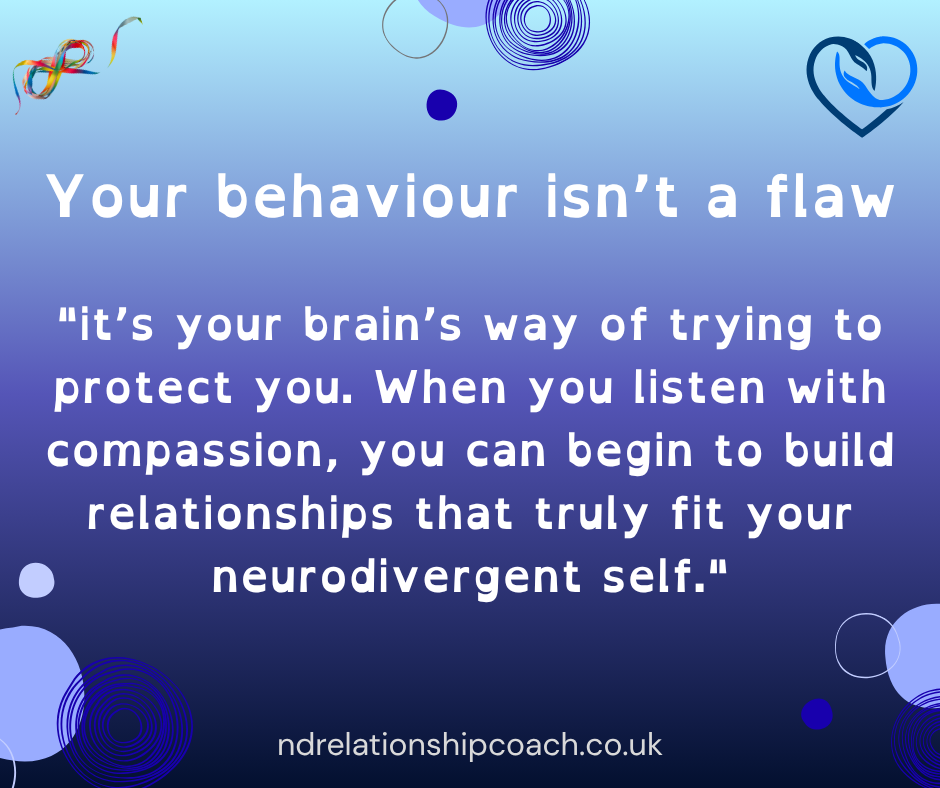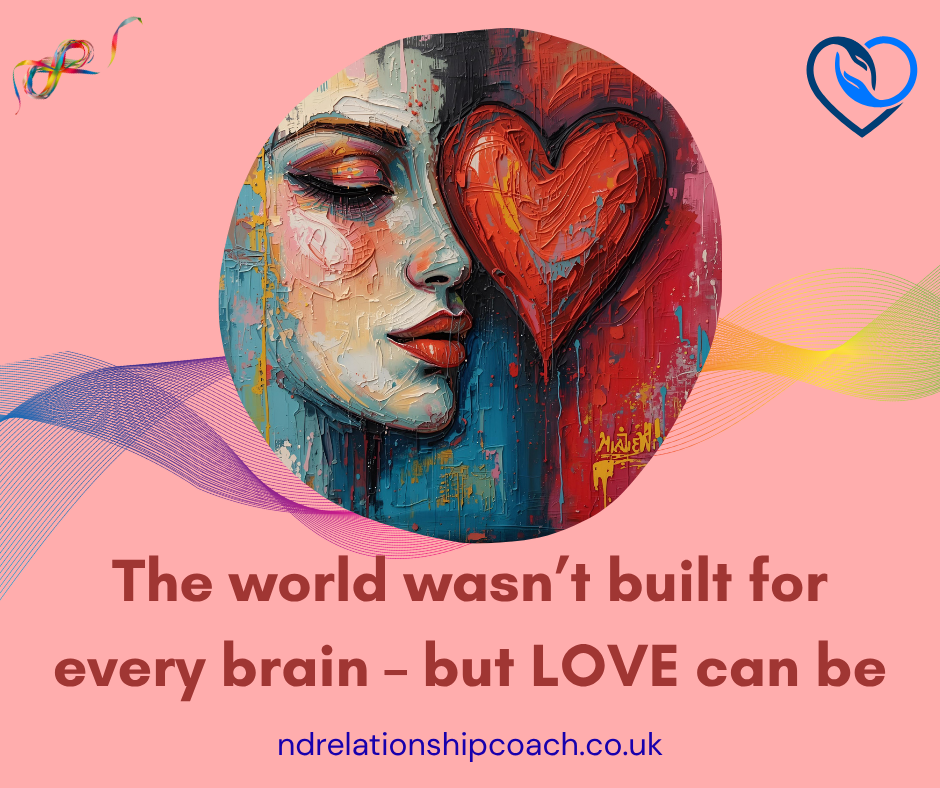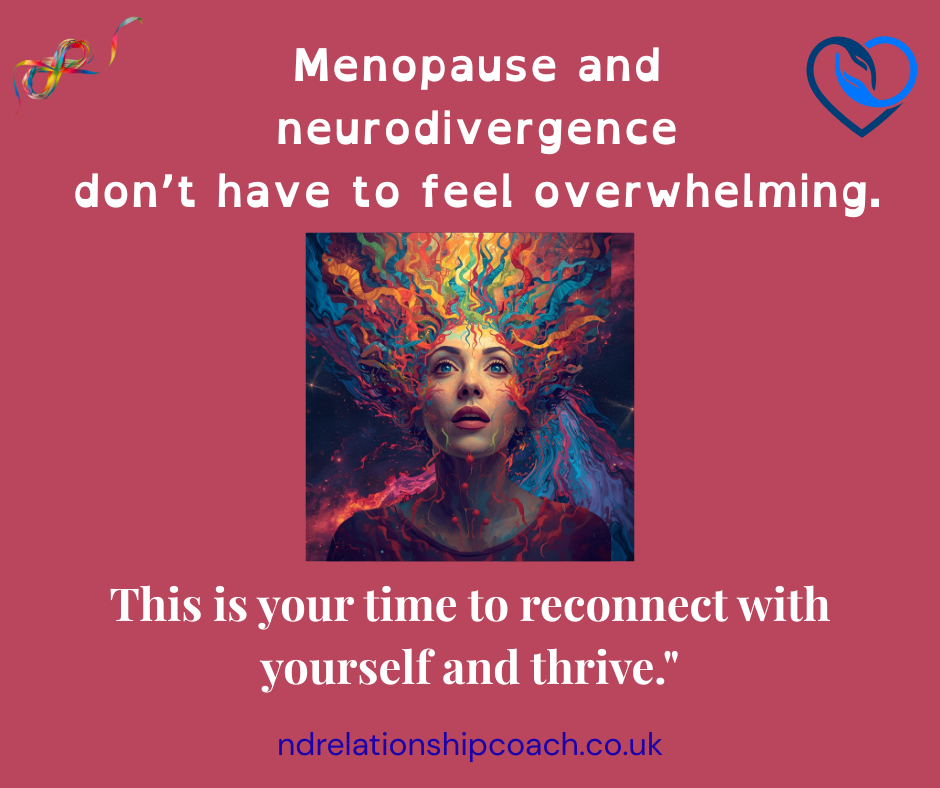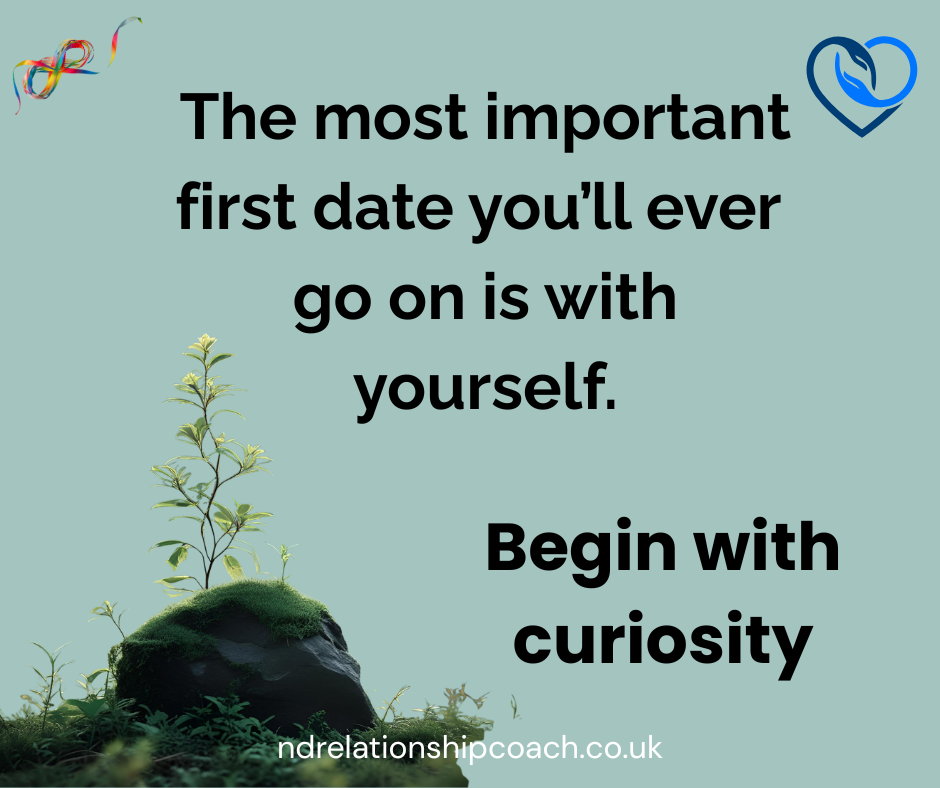
What Is Your Behaviour Trying to Tell You?
As neurodivergent people, our brains process the world differently—and that includes how we show up in relationships. We all have behaviours we fall into—some conscious, some automatic. Some feel harmless or even helpful. Others leave us frustrated, embarrassed, or confused. But what if your behaviour isn’t a problem to fix—but a message to understand?
Have you ever caught yourself thinking, “Why do I keep doing this?” Maybe it’s a dating pattern you can’t shake, a social habit that exhausts you, or a way of interacting that doesn’t feel like you.
In my work as a coach for neurodivergent relationships, we start not by changing the behaviour—but by listening to it. Even the patterns that leave you feeling stuck are trying to help you in some way.
Your Behaviour Is Trying to Protect You
Our nervous systems are wired to keep us safe. For neurodivergent brains, overstimulation, social confusion, or past relational trauma can trigger automatic responses—shutting down, overcompensating, or withdrawing. These behaviours are protective, not broken. They were designed to help you survive when things felt overwhelming.
But your brain doesn’t always know when the threat is over. Unprocessed experiences—big or small—can keep your nervous system on alert, influencing how you date, form attachments, or navigate social cues.
So your behaviours—whether it’s overthinking messages, ghosting out of overwhelm, people-pleasing, isolating, or overanalyzing—aren’t evidence of failure. They’re your brain’s way of saying: I’m trying to protect you.
Avoiding the Void
It can feel “safer” to:
-
Over-plan a date than sit with uncertainty
-
Stay in a mismatched relationship than face being alone
-
Mask your neurodivergent traits rather than risk being seen
-
Distract yourself rather than feel the grief, anxiety, or rejection
These coping strategies may have kept you safe, but long-term, they can leave you disconnected—from yourself and from relationships that truly fit you.
Are You Living Authentically?
Sometimes the question isn’t “Why do I keep doing this?”—it’s:
-
Am I showing up as my authentic self?
-
Are my relationships reflecting who I really am?
-
Am I honoring my neurodivergent needs, boundaries, and energy?
-
Am I avoiding feelings or situations that need attention?
When you notice the same patterns repeating, it’s your brain saying: Something needs to shift.
Behaviour as a Trauma and Neurodivergent Lens
For neurodivergent brains, experiences of misunderstanding, rejection, or masking in relationships can echo trauma—affecting behaviours long after the events themselves. Your nervous system might still respond as if the threat is present.
This makes shifting behaviour tricky, because old coping mechanisms feel safer than facing the underlying emotions.
Real transformation comes when we ask:
-
How is this behaviour trying to help me?
-
What am I avoiding by doing this?
-
What might I feel if I let it go?
Healing the Root Can Transform Relationships
Research in trauma and neurodivergence shows that addressing the root cause of behaviours—not just the behaviours themselves—can improve emotional and relational health. By understanding and befriending your patterns, you can:
-
Stop masking and start showing up authentically
-
Navigate dating with clarity and confidence
-
Build relationships that honour your brain, energy, and boundaries
Befriending Your Patterns
Instead of judging yourself for behaviours you want to change, what if you got curious?
Ask gently:
-
What part of me is hurting?
-
What’s underneath this urge or pattern?
-
What am I afraid might happen if I stopped doing this?
This is the reflective work I guide my clients through—not fixing, but understanding. Not shaming, but befriending. Not avoiding, but exploring.
Because when you understand your behaviours, you can start to build the dating life and relationships that truly fit your brain.
The 12-Week Dating Program: Dating Built for Your Brain™
Your behaviour patterns aren’t roadblocks—they’re clues. In my 12-week program, we use them as signposts for growth, helping you understand what your brain is trying to tell you about dating and relationships.
This program is not just about finding a date—it’s about building the relationship with yourself that allows you to date (and relate) with confidence and authenticity.
Over 12 weeks, we explore:
✨ Dating yourself first—strengthening self-curiosity, compassion, and clarity
✨ Navigating dating as a neurodivergent person—understanding your needs, communication style, and boundaries
✨ Building authentic connections—learning to date without losing yourself, and to form relationships that align with who you truly are
Because the most important first date you’ll ever go on… is with yourself.
If this resonates, I invite you to book a free chemistry call. Together, we can explore what your behaviour is trying to tell you—and how to respond with compassion, clarity, and choice, so dating and relationships can finally feel aligned with your neurodivergent brain.
Reflective Journal Prompt
Pick a behaviour you notice in your dating or relationships—one that leaves you stuck or uncertain. Ask yourself:
-
What might this behaviour be protecting me from?
-
What feelings or memories come up when I imagine not doing it?
-
Is this behaviour helping me avoid something painful, or helping me move toward connection and growth?
-
What might I need instead—emotionally, socially, or relationally?
-
How could I meet this need with compassion, rather than control or avoidance?
Write freely, without judgment. The answers often reveal themselves when your brain is ready.
 Demos
Demos  Colors
Colors  Docs
Docs  Support
Support 


















